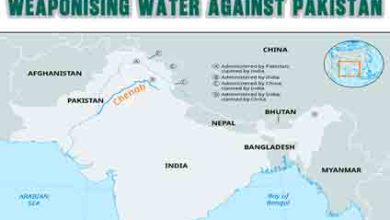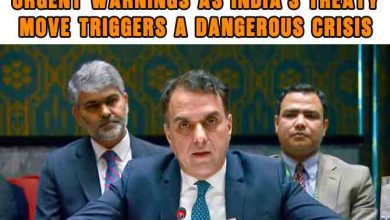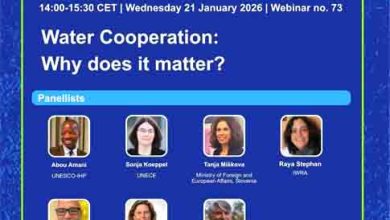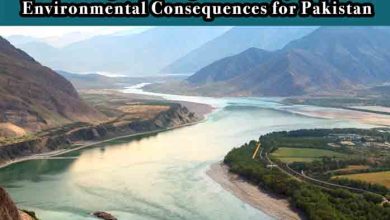Toxic Bottled Water in Pakistan: PCRWR Declares 23 Brands Unsafe in Latest Report
PCRWR’s 2025 Q2 report declares 23 bottled water brands unsafe in Pakistan due to toxic contamination. Learn how unsafe drinking water endangers public health.
Unsafe drinking water is rapidly becoming a national crisis in Pakistan. The very product consumers rely on to avoid municipal contamination—bottled water—is itself proving hazardous. The Pakistan Council for Research in Water Resources (PCRWR) has once again raised a red flag in its second-quarter report for 2025. Of the 203 samples collected from 21 cities, 23 bottled water brands have been declared unsafe for human consumption.
This disturbing revelation highlights the dangerous illusion of safety that bottled water presents in a country already struggling with access to clean and safe water. Unfortunately, this is not the first time PCRWR has revealed such findings—yet very little changes on the ground.
PCRWR’s 2025 Q2 Report: 23 Bottled Water Brands Declared Unsafe
The PCRWR is a government-mandated body tasked with monitoring and publicising the quality of bottled water every quarter. In its April–June 2025 report, the council exposed microbiological and chemical contamination in several bottled water brands. These include dangerously high levels of total dissolved solids (TDS), arsenic, sodium, and bacterial contaminants.
These 23 violators were spread across both rural and urban markets, indicating a widespread systemic failure rather than isolated incidents. Despite being named publicly, many of these companies continue operations, with no significant enforcement action taken by relevant authorities like the Pakistan Standards and Quality Control Authority (PSQCA).
Focus Keyword in Subheading: Unsafe Drinking Water in Bottled Brands
Regulatory Paralysis: The Missing Link in Accountability
While PCRWR fulfills its mandate of publicizing unsafe drinking water brands, the absence of regulatory follow-through is appalling. There are no criminal proceedings, no fines, no plant closures, and no public apologies from the companies named. This failure in enforcement reflects a deep-rooted problem within Pakistan’s public health and regulatory framework.
The PSQCA and Ministry of Science and Technology, under whose jurisdiction bottled water safety falls, have routinely failed to take meaningful action. The result is unchecked production of contaminated water, with citizens continuing to consume it under the false impression of safety.
Internal Link: Explore Pakistan’s Regulatory Gaps in Water Safety
Health Implications of Consuming Contaminated Bottled Water
Unsafe drinking water, especially when consumed unknowingly, has serious consequences. Contaminants such as E. coli, arsenic, nitrate, and high TDS levels can lead to:
-
Diarrhoeal diseases
-
Gastrointestinal infections
-
Kidney damage
-
Chronic fatigue
-
Long-term exposure to carcinogens
In a country where waterborne diseases already account for 30–40% of all illnesses, the circulation of unsafe bottled water only magnifies the crisis. Vulnerable populations—including children, the elderly, and the immunocompromised—are at even greater risk.
External Resource: WHO Guidelines on Drinking Water Quality
Recommendations for Urgent Policy Reforms
It’s not enough to merely expose violators every quarter. The Pakistani government must take aggressive action to address the unsafe drinking water problem. Here are some key recommendations:
Seal Production Units
Authorities must immediately seal bottling plants found in violation of safety standards.
Blacklist and Penalise Offenders
Repeat offenders must be blacklisted, heavily fined, and banned from operating in the industry.
Real-time Quality Monitoring
Introduce digital and blockchain-based tracking of water quality at the point of bottling and retail.
Launch a Consumer Alert System
Set up a real-time consumer alert platform through SMS and social media to notify citizens of unsafe brands.
Mandate Transparent Labeling
Enforce clear labeling of water source, TDS levels, and last quality check date on every bottle.
Internal Link: How Blockchain Can Revolutionize Food and Water Safety
Conclusion: Protecting Public Health Must Come First
The unsafe drinking water crisis in Pakistan is not just a health issue—it’s a governance failure. The PCRWR continues to perform its duties with integrity and consistency, but unless backed by a solid framework of enforcement, these efforts amount to little more than public relations exercises.
Consumers should not be expected to memorize quarterly reports to ensure their safety. Regulatory bodies must assume full responsibility for safeguarding public health. Without bold action—both legal and structural—the same headlines will repeat, while lives quietly suffer behind them.
Additional SEO & Rank Math Elements
Internal Links:







